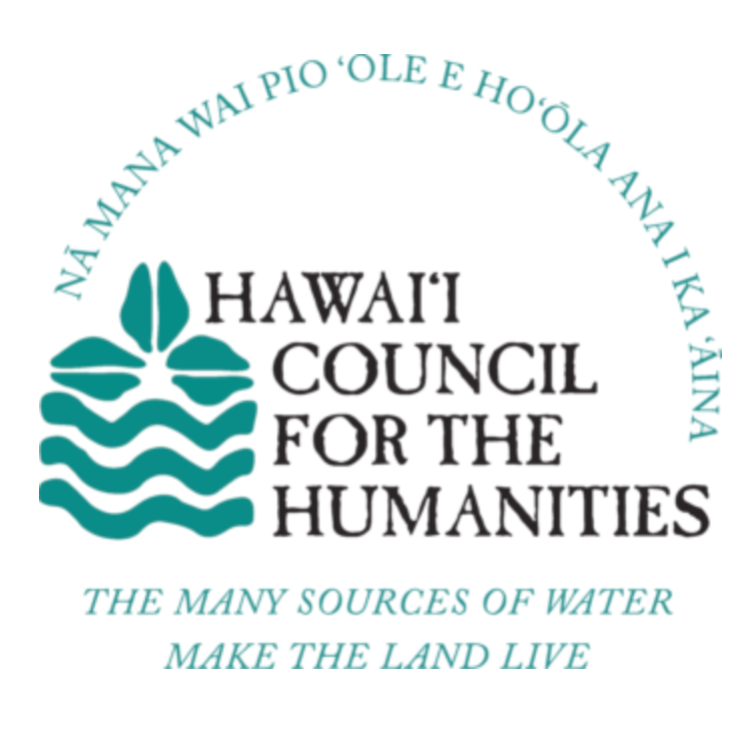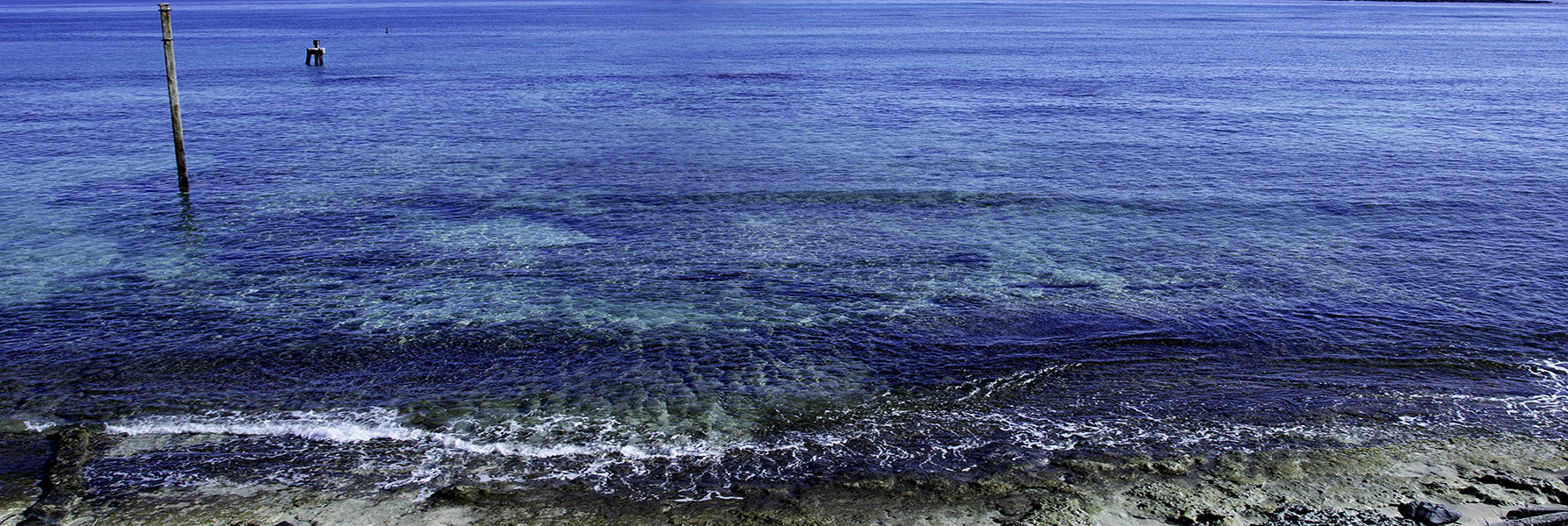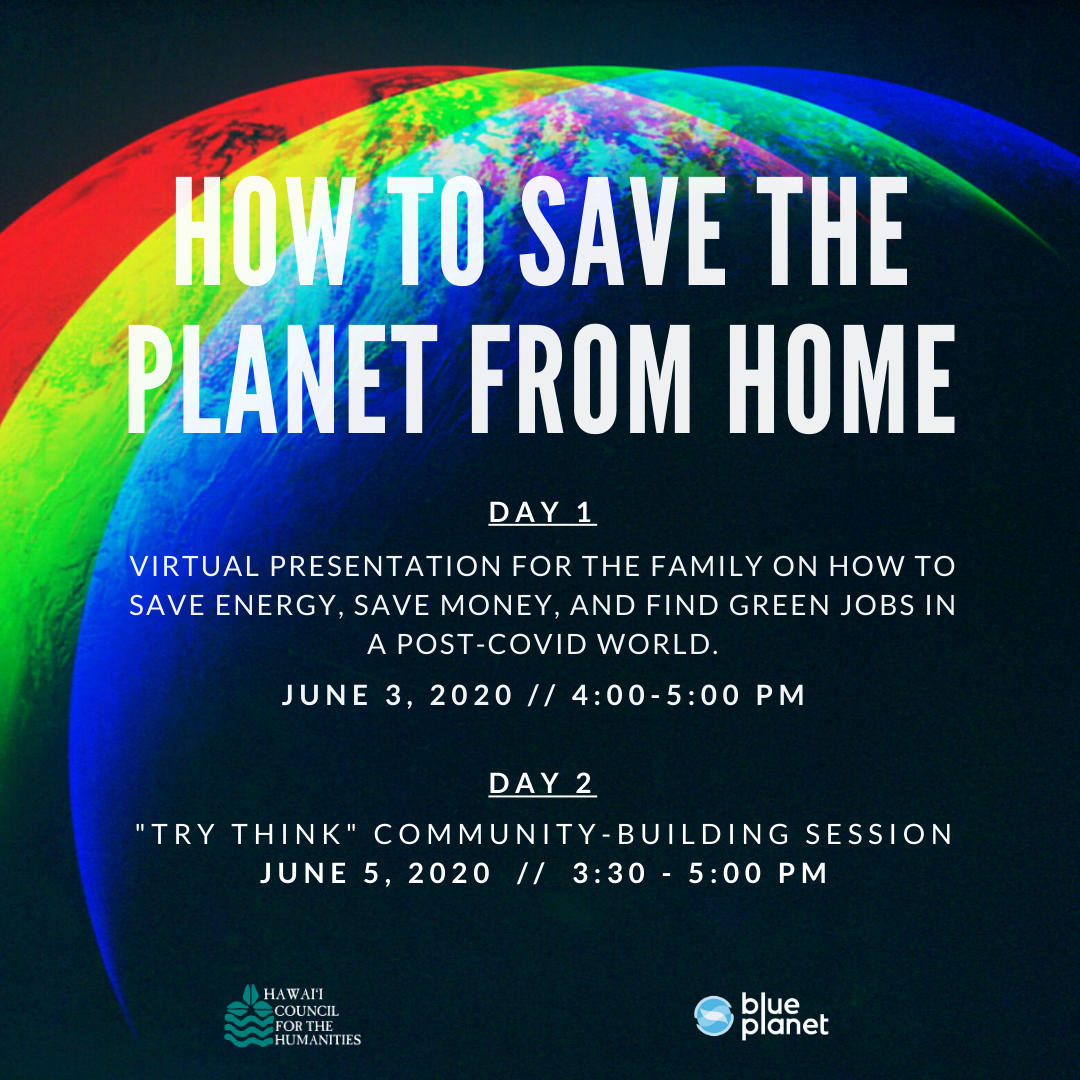
COVID & Climate Change—June 5, 2020
The global lockdown response to the COVID-19 crisis has brought isolation, anxiety and stress to every corner of the world. Life as we knew it was put on pause. As many of us struggled to adjust, our planet (and the other non-human inhabitants) took a moment to take a nice deep breath. Our oceans, land and climate have had a few months to heal. Air quality improvements have made mountains visible again. Greenhouse gas emissions have lowered. The reduction in human traffic has allowed wildlife to roam free again. As our doors begin to open up again and we resume some semblance of our pre-pandemic life, what lessons have we learned about our effects on our environment, and what will we hold on to and incorporate into our “new normal.” Lend your voice, share your ideas and engage with your community in our facilitated Try Think conversation.

Saving The Planet from Your Home—June 3, 2020
Currently, as the COVID-19 pandemic sweeps our country and globe, thousands are out of school and work, stuck at home. As we work together to transition to a post-COVID society here in Hawaii, Blue Planet has some tips and tricks to share with you about how to save money, save energy, and save the world – all from the comfort of your home. We encourage the whole family to join in and participate. A Q&A session will take place after the presentation so bring your questions.
Blue Planet Presenters:
Melissa Miyashiro – Managing Director of Strategy and Policy
Griff Jurgens – Education Director
Optional information and readings prior to our events:
Forward Together
7 Ways The Planet Has Gotten Better Since The Coronavirus Shutdown
5 Ways The Coronavirus Is Affecting Animals Around The World
Environmental Impacts Of Coronavirus Crisis, Challenges Ahead
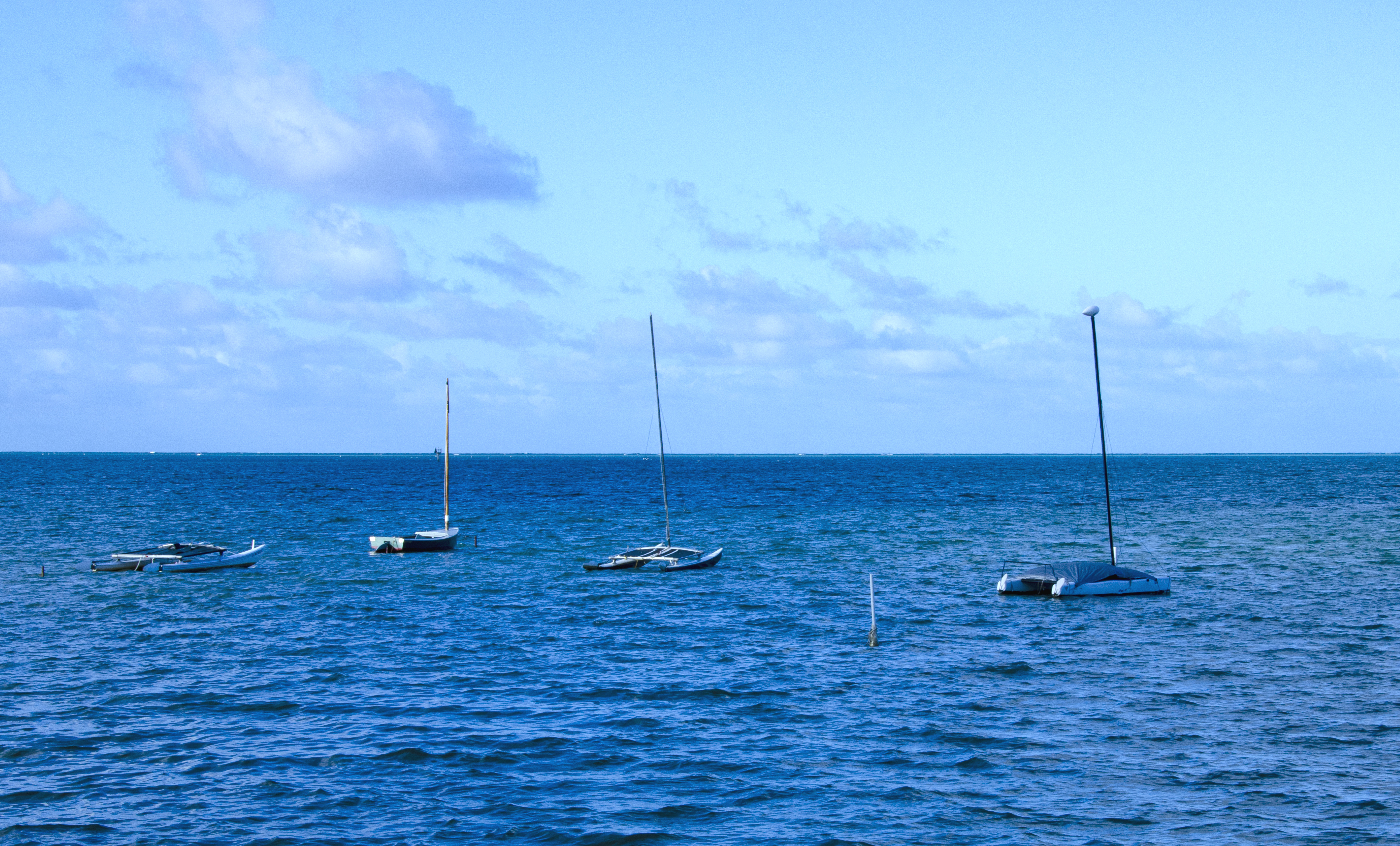
No Tourists, No Problem? - Opening Hawai’i Up For Business Again—May 29, 2020
The beaches were empty. So were the hotels. So were the work schedules for many of the 200,000+ individuals whose jobs were tied in with the visitor industry here in our islands. This pandemic has afforded us the opportunity to critically look at our reliance on tourism. As the number of new COVID-19 cases in Hawai’i dwindles and the state prepares to re-open, how will tourism look in the second half of 2020 and beyond? Are we ready for people to visit us again? What if no one comes?
Come and share your thoughts and ideas and join our conversation. *14-day home quarantine not required*
Optional reading prior to our conversation: Lack of Clear Plan to Replace Touraisn Leaves Hawaiiʻs Economic Future in Doubt
Unmute Yourself - Being Connected In This COVID Crisis—May 8, 2020
From staff meetings to family dinners to doctor appointments, virtual meeting spaces like Zoom, Webex and Teams have become our new gathering spaces for interaction. This ability to converse with one another over miles of physical distance would lead us to believe we are more connected to each other than ever, but are we really? Has this new normal of remembering to unmute ourselves changed the way we interact for the better? Is this a temporary fix or simply our new normal? What have we learned and how have we changed in this moment of virtual meetings?
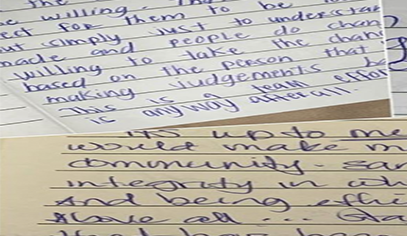
Home Schooled - Lessons Learned and Taught While Practicing Social Distance—May 6, 2020 & May 15, 2020
With the closing of schools and the extension of the stay-at-home order, teachers, students, and parents have found themselves navigating a new form of “schooling”. As a community, we are redefining what we mean by education and learning many lessons along the way. There are also many new questions arising from the current situation. How will schools practice social distancing? Are standard school buildings the best spaces for learning? Should my child leave for college in the fall? Will we ever return to school as we knew it? Should we?
We encourage you to extend this invitation to other parents, students, educators, school leaders, and community organizations you feel would be interested in engaging in this reflective discussion.
A recent article, What Will Post-Pandemic School Look Like?, shared some thoughts related to this topic.
Living History Today - Capturing The COVID-19 Experience—May 22, 2020
In our lifetime, there are few events that occur as a collective experience and make a significant impact on the way we function as a society from that point on. We initially learn about such historical events in school, from resources like history books and documentaries. But there are also diaries, artwork, photographs, and other first-hand accounts of those moments which may or may not be as accessible or even valued as much as referring to media of the time or a secondhand retelling of events.
This invitation is to a conversation around the ways we are currently living history, and how we can best capture personal experiences and changes that are taking place today. How is our “new normal” impacting our family, our community, our job, and ourselves? What stories should be captured, and what should future generations hear and learn about this period in time? What opportunities does this create for formal and informal education in our roles as parents, teachers, students, and community organizations?
Optional reading prior to our conversation: A recent blog post on Talking About Thinking, COVID-19 and Flashbulb Memories, shared some thoughts related to this topic.
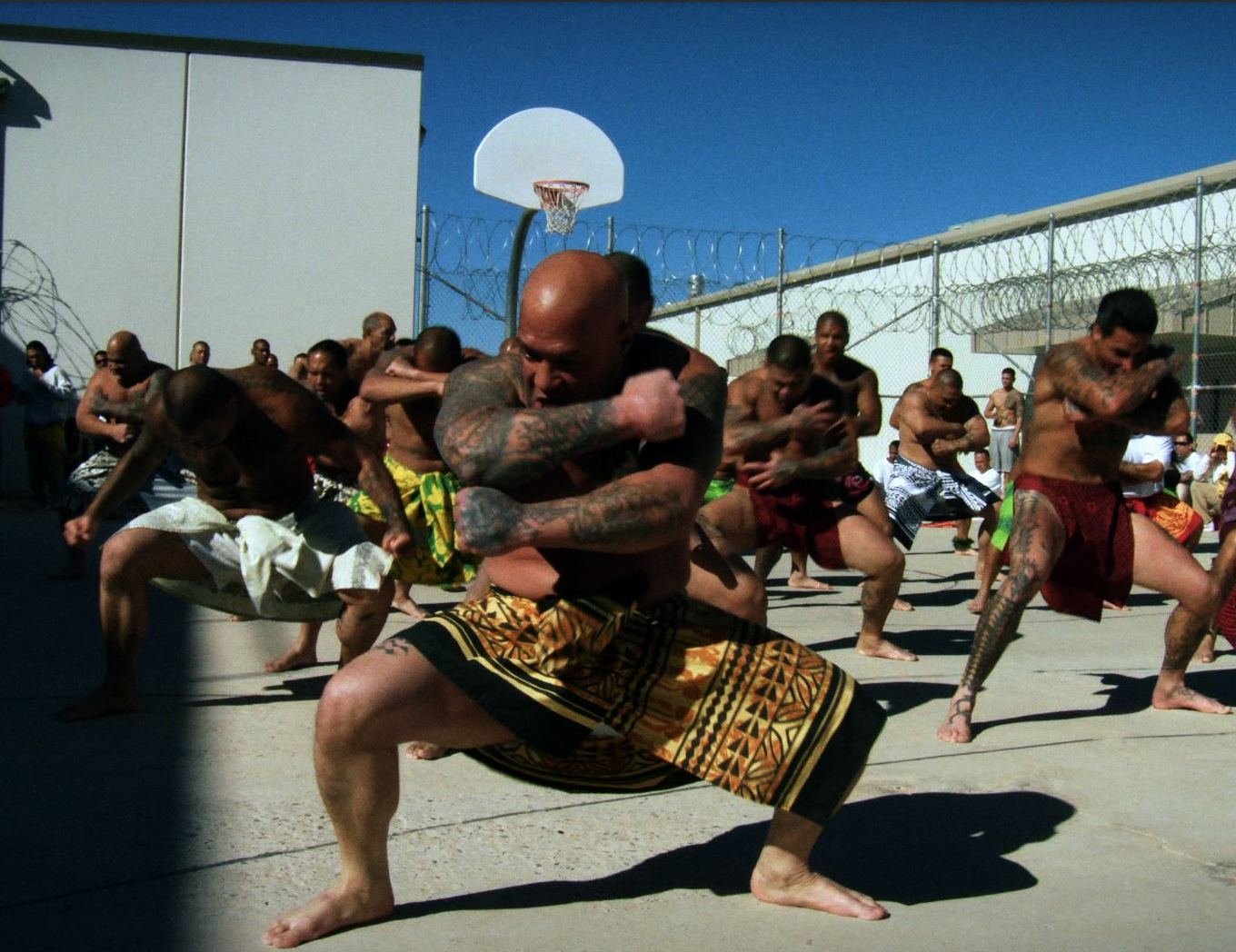
Compassionate Release—April 17, 2020 & April 24 2020
As most of you know, our Try Think program has its roots within the walls of our state correctional facilities. We have been facilitating meaningful discussions for the residents at the Women’s Community Correctional Center and the Halawa Correctional Facility since 2017. It is with these men and women in mind that we launch our first virtual discussion around the recent discussions of reducing the incarcerated population through early release in an effort to minimize the possibility of COVID-19 spread in the event that the virus were to get into the facilities.
Links to current news stories about this issue can be found here and here.
The image is taken from the important documentary Out of State, which has been an important part of Try Think programming.
